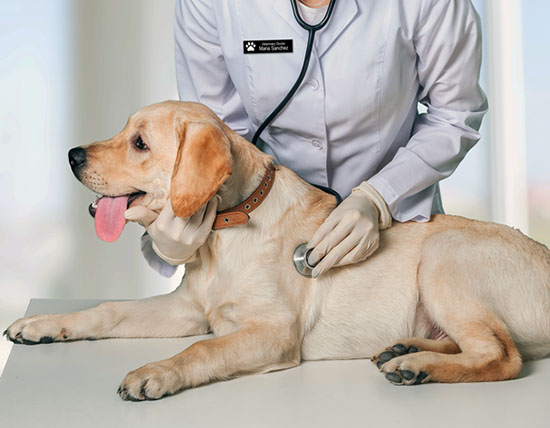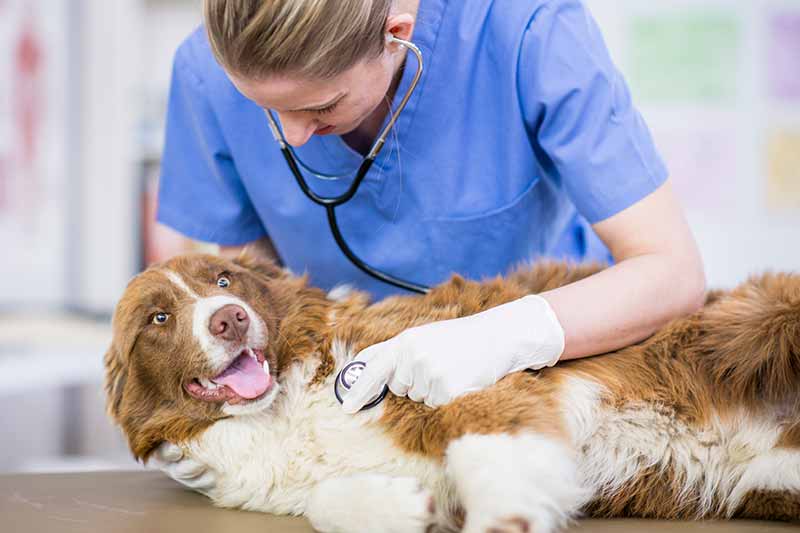Pet Cancer Surgery demystified for worried pet owners
Wiki Article
Comprehensive Guide to the Solutions Offered by a Veterinary Oncologist
Veterinary oncology includes a broad range of services targeted at detecting and dealing with cancer cells in pet dogs. Veterinary Oncology Services. Oncologists use innovative diagnostic strategies and use various treatment options tailored to every animal's requirements. They likewise prioritize encouraging treatment and give valuable resources for pet owners. Understanding these solutions is essential for making notified choices. What details facets of vet oncology can especially influence a pet dog's treatment journey?Understanding Vet Oncology
Vet oncology is a customized area concentrated on dealing with and detecting cancer cells in pets. This self-control encompasses a large range of strategies, from clinical therapies such as radiation treatment and immunotherapy to medical interventions aimed at getting rid of lumps. Veterinary oncologists are trained to identify the one-of-a-kind indications of cancer cells in numerous types, enabling them to tailor treatment plans to private people.In enhancement to typical therapies, vet oncology stresses supportive care, which plays an essential duty in improving the top quality of life for affected animals. This includes pain monitoring, dietary assistance, and palliative care options. Cooperation with family pet owners is crucial, as they are integral to decision-making concerning their pet dogs' therapy paths. As study breakthroughs, veterinary oncology remains to advance, using new hope and boosted results for pet dogs identified with cancer. Overall, this area is basic for dealing with the complexities of cancer in buddy animals.
Advanced Diagnostic Techniques
Advanced diagnostic techniques play an important function in vet oncology, supplying essential insights right into the presence and degree of cancer cells in animals. Imaging modalities such as ultrasound, CT scans, and MRI are commonly utilized to visualize growths and examine their features. In addition, biopsy procedures are vital for obtaining tissue samples, permitting definitive diagnosis and customized therapy strategies.Imaging Modalities Utilized
Imaging techniques play a vital duty in the medical diagnosis and administration of cancer cells in pets. Vet oncologists make use of different innovative imaging methods to analyze growth transition, existence, and dimension. Radiography, or X-rays, uses an initial sight of bone and chest problems, while ultrasound gives real-time imaging of soft cells, enabling detailed analysis of interior organs. Computed tomography (CT) boosts visualization of complicated physiological structures and enables 3D repairs, helping in exact tumor localization. Magnetic vibration imaging (MRI) is indispensable for soft tissue distinction, particularly in brain growths. In addition, nuclear medicine techniques such as positron emission tomography (ANIMAL) help identify metabolic task within growths. Jointly, these techniques improve analysis accuracy, assisting reliable therapy approaches for oncological patients.Biopsy Procedures Discussed
Following the preliminary assessment via imaging modalities, getting a clear-cut medical diagnosis often requires tissue tasting through biopsy treatments. Vet oncologists utilize numerous biopsy techniques based on the lump's location and qualities. Great needle aspiration (FNA) is a minimally invasive method that removes cells for cytological exam, suitable for superficial masses. Core needle biopsies offer bigger cells examples and are beneficial for deeper growths, enabling histopathological analysis. Surgical biopsies entail excising a part or the whole tumor, assisting in comprehensive examination. These treatments not just validate the visibility of cancer but additionally aid identify its type and quality, assisting treatment decisions. Each biopsy approach is chosen carefully to stabilize diagnostic precision with patient safety and security and convenience.Therapy Choices for Cancer in Pet dogs
When a pet dog is identified with cancer cells, a range of therapy alternatives appear to aid improve and handle the disease lifestyle. Veterinary oncologists normally recommend a multidisciplinary strategy customized to the private animal's demands, which may consist of surgery, radiation treatment, immunotherapy, or different treatments.Surgical procedure is commonly employed to eliminate growths and afflicted tissues, possibly causing complete remission in many cases. Radiation treatment intends to target and destroy cancer cells, decreasing lump dimension and relieving symptoms - Veterinary Oncologist. Immunotherapy takes advantage of the family pet's immune system to combat cancer cells a lot more successfully, while alternative therapies may consist of acupuncture or natural supplements to support overall health and wellness
Each treatment option carries its own advantages and dangers, and veterinary oncologists function carefully with pet owners to create a comprehensive strategy that aligns with the family pet's certain medical diagnosis and the proprietor's desires. The ultimate objective is to improve the pet dog's convenience and top quality of life throughout their cancer trip.
Chemotherapy for Pets
Chemotherapy is an usual therapy alternative for family pets identified with cancer cells and is frequently utilized together with various other therapies laid out by vet oncologists. This treatment involves the administration of particular medications created to target and ruin cancer cells, thus decreasing tumor size and avoiding the spread of the illness. Veterinary oncologists customize chemotherapy procedures based upon the type of cancer, the pet's general health, and the wanted treatment result.Adverse effects can occur, as these drugs may likewise influence healthy cells. Usual responses include queasiness, throwing up, and momentary adjustments in hunger - Pet Cancer Surgery. Vet oncologists are furnished to take care of these negative effects properly, ensuring the pet dog's convenience throughout the therapy process. Routine surveillance with blood tests and follow-up appointments is necessary to assess the animal's action to chemotherapy and make needed modifications. Ultimately, chemotherapy can give considerable benefits, improving the high quality of life for pet dogs facing cancer cells medical diagnoses

Radiation Therapy in Veterinary Medicine
Radiation therapy functions as an efficient treatment choice for pets identified with local tumors, providing a targeted technique to cancer cells management. This method utilizes high-energy radiation to harm the DNA of cancer cells, preventing their capacity to multiply. It is specifically valuable for growths that are not amenable to medical removal or for situations where surgical procedure may not be viable because of the growth's location.Veterinary oncologists customize radiation methods based on growth type, size, and location, as well as the family pet's total wellness. Treatment can be supplied via external beam of light radiation or brachytherapy, each with distinct advantages. Usually, multiple sessions are called for to make best use of performance while reducing negative effects.
Although pet dogs may experience short-term responses such as skin inflammation, the overall objective is to shrink growths and ease signs, inevitably improving the family pet's diagnosis and quality of life. As necessary, radiation treatment plays a vital function in thorough cancer cells treatment.
Palliative Care and Quality of Life
Palliative treatment in veterinary oncology concentrates on improving the top quality of life for animals facing terminal illnesses, guaranteeing comfort and self-respect in their last days. This customized approach prioritizes pain monitoring, sign control, and emotional assistance. Vet oncologists analyze each pet dog's specific requirements, tailoring treatments to ease discomfort and enhance overall health.Techniques may include providing drugs for pain relief, handling nausea, and attending to various other traumatic signs. Additionally, dietary assistance is commonly supplied to maintain stamina and boost hunger. The emotional element of palliative treatment is similarly crucial; creating a calm environment helps in reducing anxiety for both pet and proprietor.
Eventually, the objective of palliative care is to permit animals to appreciate their staying time with as much joy and dignity as feasible. By focusing on convenience and top quality of life, veterinary oncologists play an important duty in ensuring that animals and their households navigate this challenging trip with compassion and understanding.
Support for Pet Owners During Treatment

Emotional Support for Proprietors
Charting the psychological landscape during a family pet's cancer cells treatment can be an overwhelming experience for owners. The unpredictability bordering Veterinary Oncology Services diagnosis and prognosis can lead to feelings of vulnerability, despair, and anxiety. Veterinary oncologists recognize the importance of psychological assistance and typically give guidance to aid owners browse this hard trip. Communication is important; going over therapy options and potential outcomes can minimize some fears. In addition, offering confidence that psychological reactions are legitimate fosters an encouraging atmosphere. Several oncology clinics might also recommend support groups or therapy services customized for animal owners, helping with common experiences. Motivating proprietors to prioritize self-care throughout this moment is vital, as their psychological well-being directly affects their animal's comfort and general therapy experience.
Resources and Educational Products
Steering with the intricacies of a pet's cancer treatment can be intimidating for owners, making accessibility to educational products and reliable resources vital. Veterinary oncologists often offer a selection of handouts, sales brochures, and online products that discuss treatment options, prospective negative effects, and treatment techniques. These resources help demystify the process and empower animal owners to make informed decisions. Furthermore, many oncology facilities offer accessibility to sustain teams and online forums where owners can attach with others facing similar difficulties, promoting a feeling of community. Educational workshops and webinars performed by veterinary professionals additionally boost understanding, ensuring that proprietors are fully equipped to navigate their pet's trip via cancer cells treatment with confidence and expertise.Regularly Asked Concerns
Just How Can I Prepare My Animal for a Veterinary Oncology Go To?
Preparing a family pet for a vet oncology check out includes event clinical documents, noting signs and symptoms, and ensuring the family pet fits. A calm temperament and familiar items can help alleviate anxiousness during the appointment.What Are the Signs My Pet Dog May Have Cancer Cells?
Indicators that an animal might have cancer cells include unusual weight reduction, persistent vomiting or diarrhea, uncommon swellings or swellings, sleepiness, modifications in hunger, difficulty breathing, and changes in habits. Prompt vet interest is necessary.Exactly How Can I Support My Family Pet Psychologically Throughout Therapy?
Sustaining a family pet emotionally during treatment involves supplying comfort, keeping routines, supplying mild love, and making sure a calm environment. Participating in silent play and routine friendship helps alleviate stress and fosters a complacency.Exist Different Therapies for Pets With Cancer cells?
Different treatments for pet dogs with cancer cells include acupuncture, herbal treatments, and nutritional support. These methods might match conventional therapies, advertising general health. Consulting with a veterinarian is vital for safe and reliable integration of alternate treatments.What Expenses Should I Expect for Vet Oncology Providers?
The expected expenses for veterinary oncology services can differ significantly, frequently influenced by diagnostics, treatments, and ongoing care. Pet dog owners ought to plan for expenses varying from examinations to specialized therapies, showing the intricacy of cancer cells administration.Cooperation with animal proprietors is crucial, as they are important to decision-making concerning their family pets' treatment paths. Each treatment alternative brings its very own benefits and dangers, and veterinary oncologists function very closely with pet proprietors to make an extensive strategy that lines up with the family pet's specific diagnosis and the owner's desires. Pets may experience short-term responses such as skin inflammation, the total aim is to diminish tumors and alleviate symptoms, eventually improving the animal's prognosis and high quality of life. Support for pet proprietors throughout therapy is vital in guiding through the psychological difficulties connected with a pet dog's cancer medical diagnosis. Preparing a family pet for a veterinary oncology visit involves gathering medical records, keeping in mind signs, and making sure the family pet is comfortable.
Report this wiki page